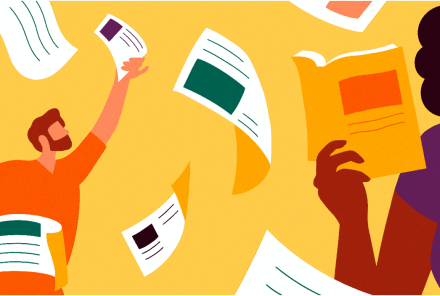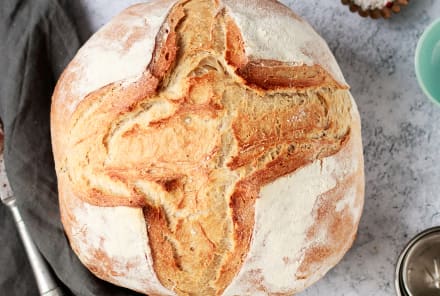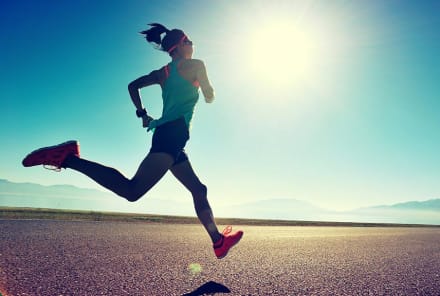Advertisement
Time To Forget Myers-Briggs? Scientists Just Outlined Four New Personality Types

People love a good personality test. There's something uniquely satisfying about being able to place ourselves and the people around us into clearly defined categories that can help us understand why we all behave the way we do and maybe shed some light on how to make decisions in our lives. That's why horoscopes, the Myers-Briggs Type Inventory, attachment styles, and all those other ways of categorizing ourselves are so popular.
Well, for all you folks who know your MBTI letters by heart, get this: Scientists from Northwestern University have just identified a brand-new set of personality types. According to the huge new data dive, we all fall under one of four main personality types: average, reserved, role model, and self-centered.
Published1 in the journal Nature Human Behavior, the new study analyzed 1.5 million responses to four personality questionnaires administered via the internet, taken by volunteers in exchange for information about their own individual characters. From these results, researchers found four distinct personality "clusters" that most people fell into. These clusters were defined using the well-researched "big five" personality traits: neuroticism, extroversion, openness, agreeableness, and conscientiousness.
Here's a breakdown of the four personality types.
Average
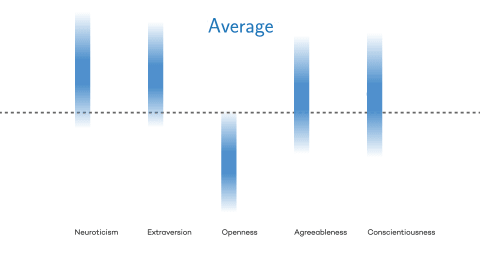
Most people can be classified as "average." Average personality types are moderately agreeable, moderately conscientious, highly neurotic, highly extroverted, and not very open. In other words, these people are generally social and pleasant to be around, tend to worry a lot, and aren't big on trying new things. Women are more likely than men to fall into this category, the data showed.
Reserved

A reserved person is moderately agreeable and conscientious as well, but they're less extroverted than the average personality and quite low in both openness and neuroticism. "This is someone who sort of doesn't like to be in the limelight and also that is sort of not very open to new ideas," said Luis Amaral, Ph.D., a Northwestern chemical and biological engineering professor and one of the study authors, in a news release.
Because they're less neurotic, these people can also be considered more emotionally stable than the average personality.
Role Model
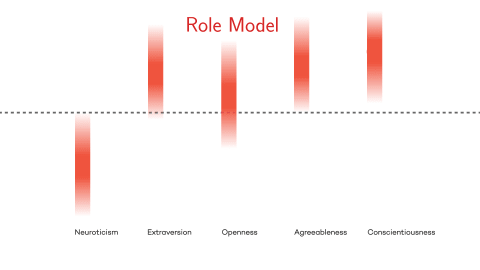
These folks are characterized by "very societally beneficial traits," Dr. Amaral explained. Role models are very high in agreeableness, conscientiousness, and extroversion, and they're also moderately high in openness and virtually not neurotic at all.
"These are good people to be in charge of things. In fact, life is easier if you have more dealings with role models," Dr. Amaral said.
Women were slightly more likely than men to be role models, and older people also were more likely to fall under this category.
Self-Centered
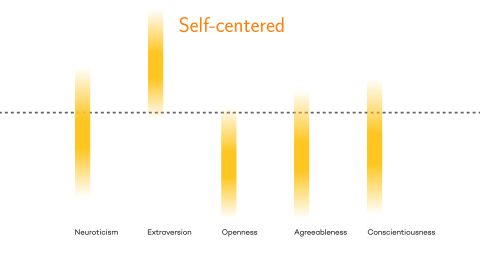
Described as the mirror opposite of the role models, self-centered types are high in extroversion, moderately neurotic, and quite low in conscientiousness, agreeableness, and openness. In other words, they're very outgoing but also pretty prone to moodiness, and they don't have a lot of the more positive, pro-social qualities like being responsible, open-minded, or generally friendly. "These are people you don't want to hang out with," said William Revelle, Ph.D., a Northwestern psychology professor and another lead study author.
The study found a dramatic decrease in self-centered people as age increased. Young male teens were particularly represented in this group, whereas young women were particularly underrepresented.
Importantly, personalities change over time (usually for the better).
While more research needs to be done, the researchers did find that certain personalities became more or less prevalent as age increased—generally speaking, the more "positive" personality types had a lot more older folks, while younger folks were quite represented among the more "negative" types. This lines up with past research that's shown that people's personalities generally tend to "mature" with age, discarding antisocial qualities for more pro-social ones as the years go by.
The new categories have yet to be translated into a personality quiz that can be used by the general public, but that will hopefully come soon as more research is conducted around them.
"Knowing about yourself does help you cope with life, if you will," Dr. Revelle said. "If you understand what you can do well, I think you tend to go off into occupations that you do a better job in doing, and you enjoy it more. And if you discover you're the sort of person who takes a long time to warm up to new events, if you know that about yourself, you can in fact say, oh, OK, right now I don't want to do it, but if I keep doing this awhile, I will get better at it. I know that about myself."
Watch Next
Enjoy some of our favorite clips from classes
Enjoy some of our favorite clips from classes
What Is Meditation?
Mindfulness/Spirituality | Light Watkins
Box Breathing
Mindfulness/Spirituality | Gwen Dittmar
What Breathwork Can Address
Mindfulness/Spirituality | Gwen Dittmar
The 8 Limbs of Yoga - What is Asana?
Yoga | Caley Alyssa
Two Standing Postures to Open Up Tight Hips
Yoga | Caley Alyssa
How Plants Can Optimize Athletic Performance
Nutrition | Rich Roll
What to Eat Before a Workout
Nutrition | Rich Roll
How Ayurveda Helps Us Navigate Modern Life
Nutrition | Sahara Rose
Messages About Love & Relationships
Love & Relationships | Esther Perel
Love Languages
Love & Relationships | Esther Perel




